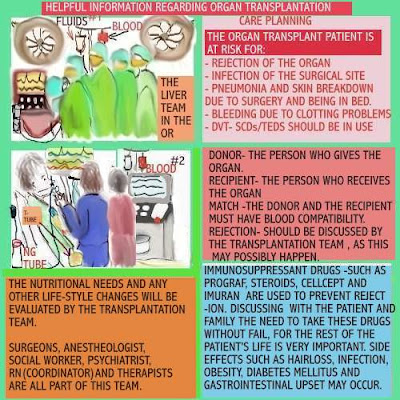Organ Transplantation
Organs that can be transplanted are the heart, kidneys, liver, lungs, pancreas, intestine, and thymus. Tissues include bones, tendons (both referred to as musculoskeletal grafts), cornea, skin, heart valves, and veins. Worldwide, the kidneys are the most commonly transplanted organs, followed closely by the liver and then the heart. The cornea and musculoskeletal grafts are the most commonly transplanted tissues; these outnumber organ transplants by more than tenfold.Organ donors may be living, or brain dead. Tissue may be recovered from donors who are cardiac dead – up to 24 hours past the cessation of heartbeat. Unlike organs, most tissues (with the exception of corneas) can be preserved and stored for up to five years, meaning they can be "banked". transplantation raises a number of bioethical issues, including the definition of death, when and how consent should be given for an organ to be transplanted and payment for organs for transplantation.[1][2] Other ethical issues include transplantation tourism and more broadly the socio-economic context in which organ harvesting or transplantation may occur. A particular problem is organ trafficking.[3] Some organs, such as the brain, cannot yet be transplanted in humans.



No comments:
Post a Comment